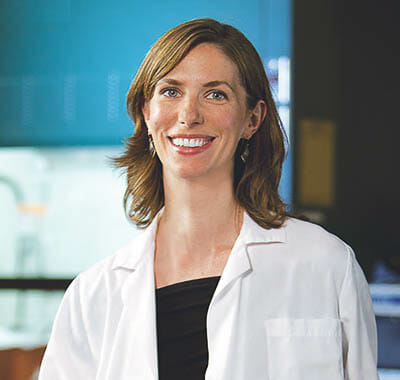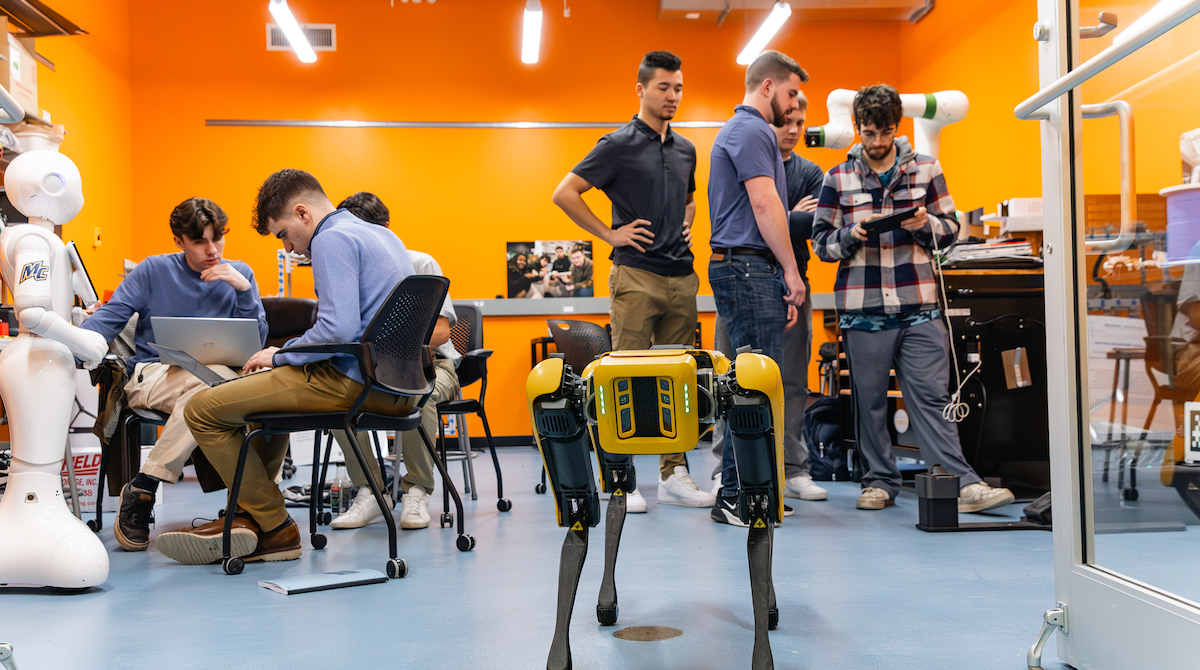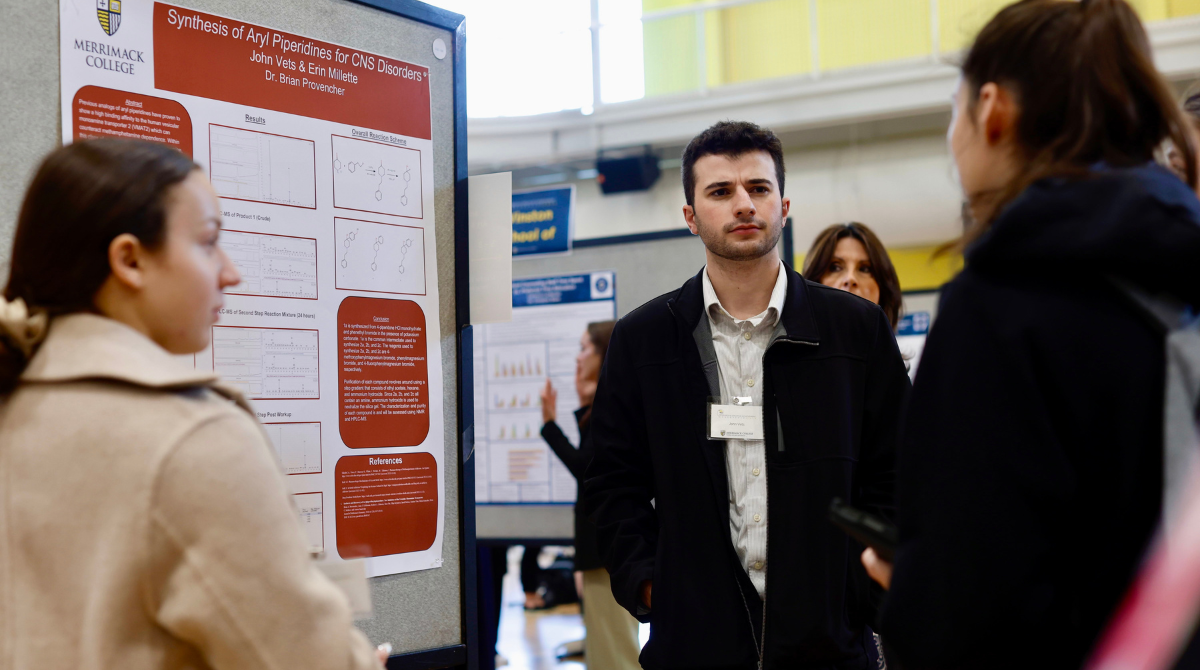Dr. Berkes had been named the recipient of the 2012-13 Paul E. Murray Fellowship which is committed to faculty development and support of significant projects of research and study at Merrimack. The Paul E. Murray Fellowship, which has supported this research, has enriched the Merrimack science and engineering education since the 1980s.
“The mammalian immune system contains cells that ingest bacteria and other foreign invaders,” explains Dr. Berkes. “These professional phagocytes utilize a network of “pattern recognition receptor” proteins in order to detect foreign microbes and direct an appropriate immune response. Recently, genome sequencing efforts have revealed the presence of conserved pattern recognition receptors in the genome of Dictyostelium discoidium, a simple social amoeba. The support of Murray funds has made it possible for me to initiate a new project involving Merrimack undergraduates that aims to characterize the functions of the Dictyostelium pattern recognition receptors. This has been a fun and interesting project that lies at the intersection of many sub-disciplines within the life sciences, including cell biology, molecular biology, immunology, biochemistry, and bioinformatics.
Dr. Berkes earned her B.S. at Pennsylvania State University, Ph.D. at University of Washington, and completed her postdoctoral fellowship at the University of California, San Francisco.
The Murray Symposium is free and open to all.





